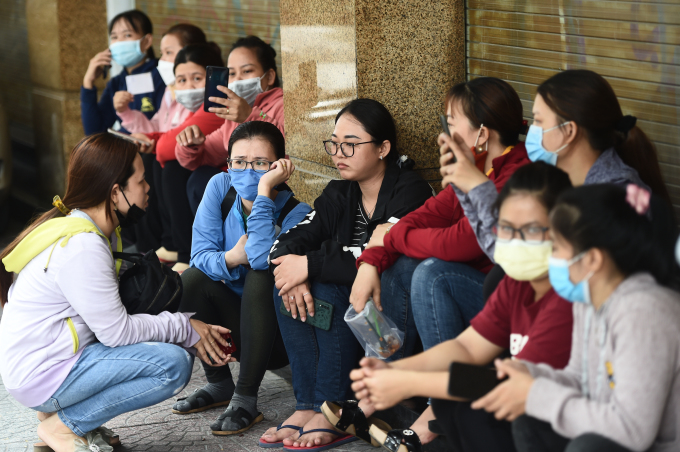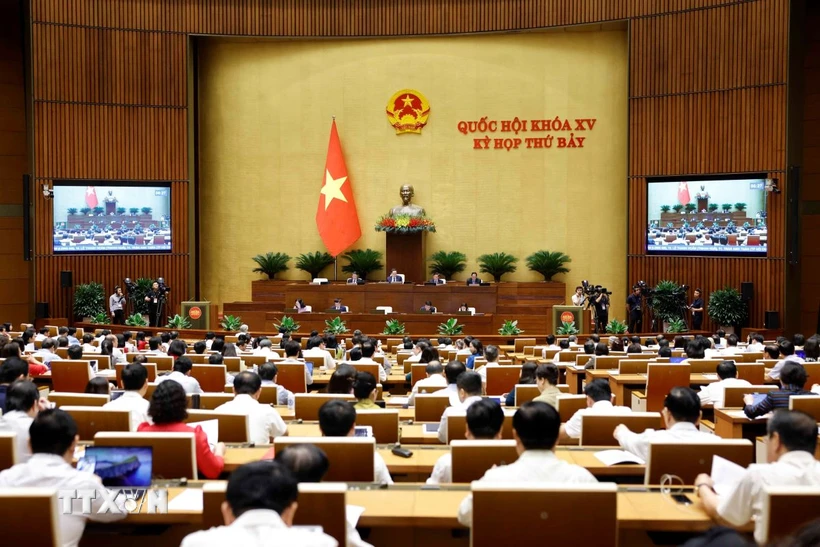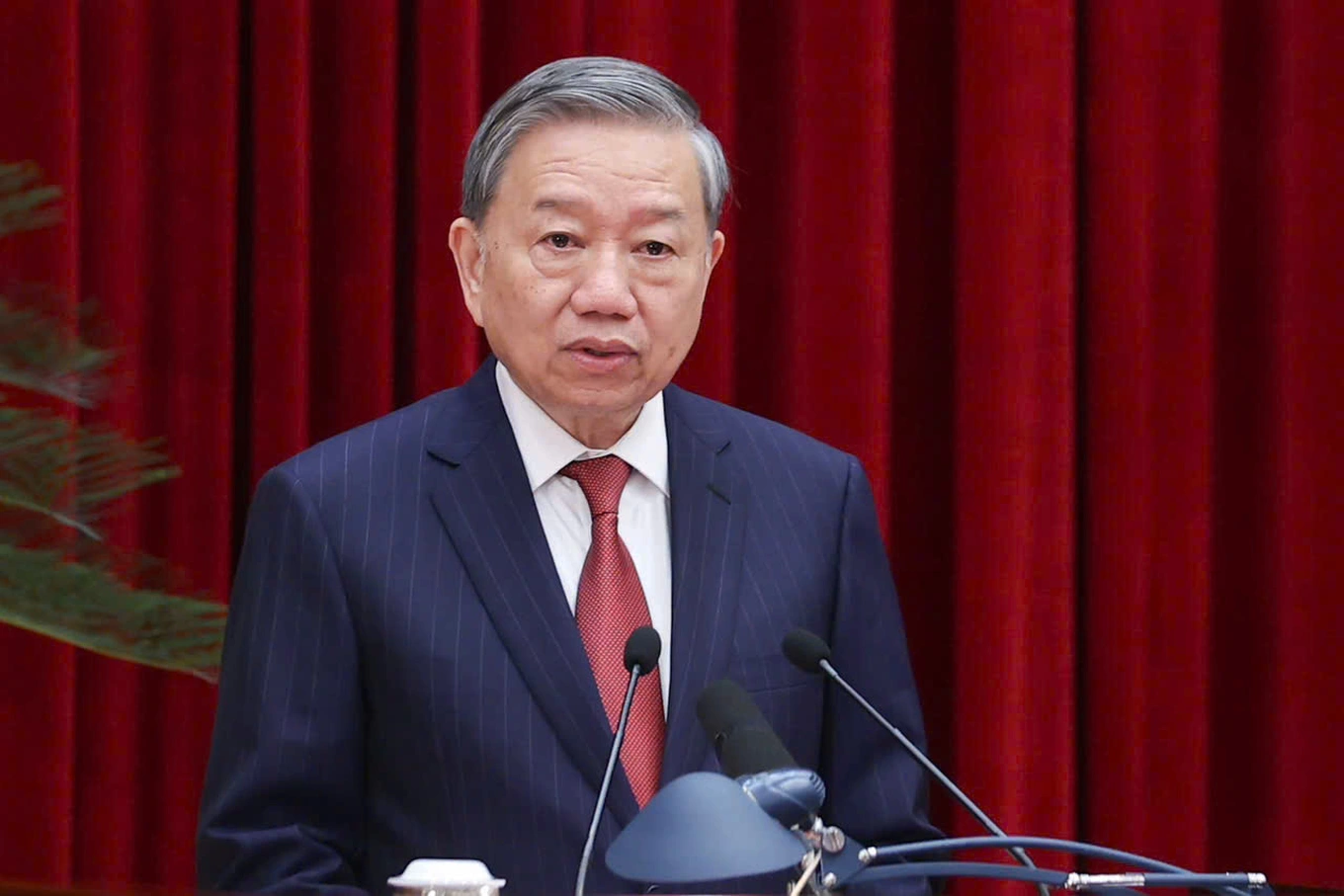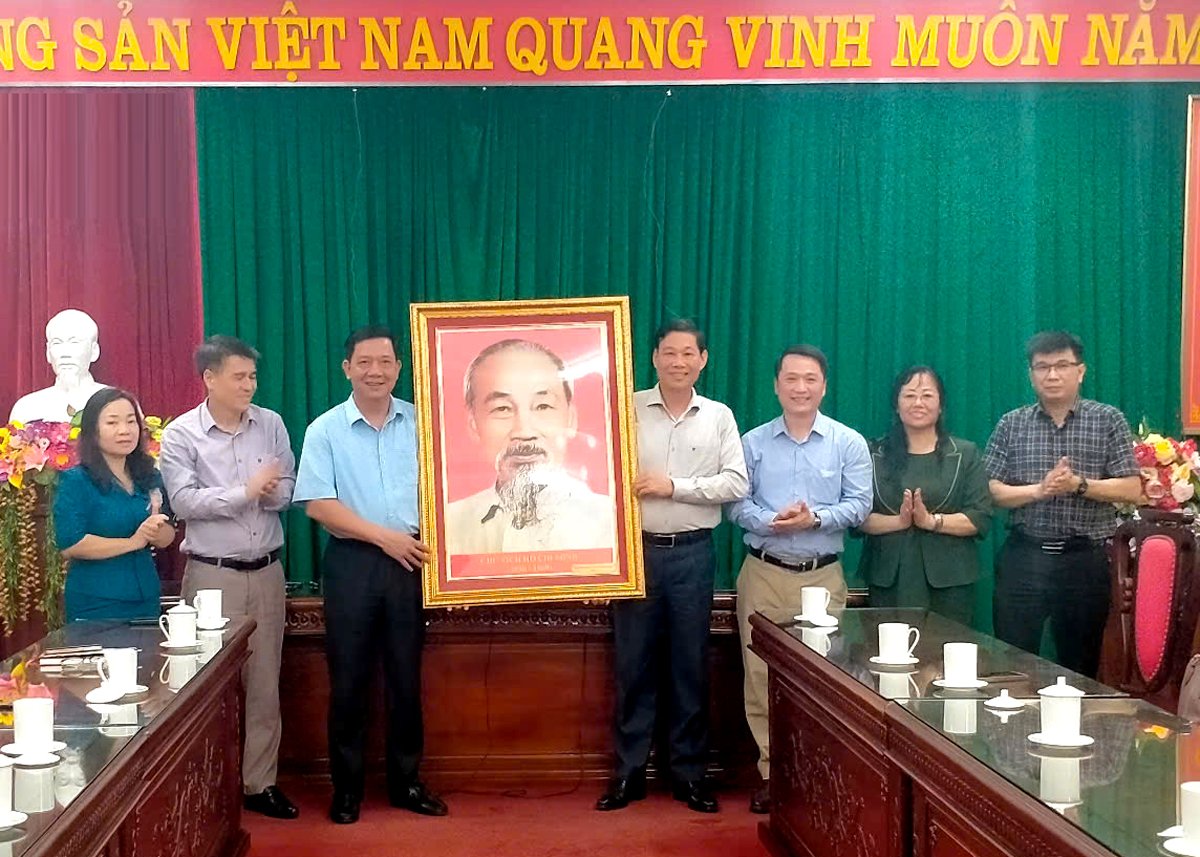On the morning of June 6, Minister Dao Ngoc Dung - the first member of the Government - will answer questions from National Assembly deputies on labor and employment issues.
Mr. Dao Ngoc Dung's time to speak is from 8:10 to 11:30 and in the afternoon from 14:00 to 14:20. Deputy Prime Minister Tran Hong Ha, Ministers of Finance, Planning and Investment, Education and Training, and Home Affairs will participate in answering questions.
The questions include solutions to develop high-quality human resources to meet the development requirements of the industry and sector; planning and restructuring of training quality of vocational training institutions; employment status and solutions to remove obstacles in job creation for workers.
Minister Dung also informed about solutions to overcome limitations in the field of social insurance (enterprises evading payment, appropriation, and debt of social insurance premiums, collusion, false establishment, and falsification of insurance benefit records, and incorrect payment of benefits); the management of the Social Insurance Fund; and solutions to overcome the increasing trend of employees withdrawing social insurance benefits at one time.
Attracting good students into vocational education
In a report sent to National Assembly deputies before the question-and-answer session, Minister of Labor, War Invalids and Social Affairs Dao Ngoc Dung said that over the past time, the quality and efficiency of human resource training have been gradually improved, better meeting the labor needs of businesses and the labor market.
Vocational skills of learners have been enhanced, over 80% of graduates have jobs, of which 70-75% of graduates have jobs in the right field or profession. Some vocational training institutions are prestigious in training quality, closely linked with businesses, with a 100% employment rate after graduation.
The connection between training - enterprises - labor market has positive changes, cooperation models are diverse and rich, solving employment for graduates. Many training institutions have established specialized departments for connecting with enterprises.
However, vocational education is not closely linked to the labor market; the training scale is still small and the structure of training levels and occupations is unreasonable, especially for economic sectors in which Vietnam has strengths. International integration is not proactive and effective; opportunities and potential for multilateral and bilateral cooperation have not been fully exploited.

Workers on leave gathered in front of Gia Dinh Textile Joint Stock Company. Photo: Thanh Tung
The Minister of Labor, War Invalids and Social Affairs said that the Ministry will improve the policy system, increase openness and connectivity, and effectively implement career guidance and streaming in general education. The policy of attracting good students to vocational education will be focused on, while agencies will research and supplement training levels to form a high-level practical training system.
Strengthening labor demand forecasting
Mr. Dung said that the labor force from 15 years old in the first quarter of 2023 reached 52.2 million people, but the growth rate showed signs of slowing down. The labor force participation rate in urban areas was 65.2%, in rural areas was 71.3%. The number of workers working abroad increased rapidly, in the first 4 months of the year was nearly 50,000. Workers' income improved, with an average per capita in the first quarter of 2023 of 7 million VND.
However, due to the impact of the economic recession, the number of employees in businesses affected in the first half of 2023 was nearly 510,000. The number of people who quit or lost their jobs was 280,000; the largest number was in the textile and garment industry. The places with the most unemployed workers were industrial parks and large economic zones such as Binh Duong, Dong Nai, Ho Chi Minh City, Bac Giang, Bac Ninh, Hai Duong and Hanoi.
More than 8,600 enterprises had to cut their workforce, of which 27% were FDI enterprises; 72% were non-state enterprises. The most affected region was the Southeast region, accounting for nearly 2/3; 12% of enterprises were in the Red River Delta. According to statistics, untrained workers who were laid off or lost their jobs accounted for the largest proportion, 68%.
The Ministry of Labor, War Invalids and Social Affairs has implemented many policies to support people who have lost their jobs or reduced working hours, such as free job counseling and referrals; vocational training support, preferential credit, maintaining and expanding employment from the National Employment Fund; and a policy to temporarily suspend contributions to the pension and death benefit fund.
In the coming time, the Ministry will complete the system of policies and laws to develop the labor market factors synchronously; promote sustainable job creation, effective labor use through credit policies to support job creation and participation in the labor market. The Ministry also assigned agencies to promote forecasting of labor demand, vocational training of enterprises; attract investment, support enterprises to recover and develop production, business, access markets, seek new orders, and reduce production costs.

Workers at Chin Luh Shoe Company Limited (Thuan Dao Industrial Park, Ben Luc), 2021. Photo: Quynh Tran
Social insurance fund investment research
Minister Dao Ngoc Dung said that the size of the Social Insurance Fund has increased rapidly over the years. By the end of 2022, the size of the funds reached nearly 1.2 million billion VND. However, the rate of return from investment activities is still limited and tends to decrease gradually because the investment portfolio is mainly government bonds. Government bond interest rates will decrease sharply from 8-9% per year to about 2.5-2.8% per year in 2021.
The reason for the low profitability is that the Social Insurance Law does not stipulate a long-term investment strategy and a medium-term investment plan; the top priority is to ensure fund safety along with profitability. The investment portfolio is mainly government bonds, loans to the state budget and deposits at commercial banks; there is no form of investment trust. The current law also does not specifically stipulate risk management for insurance agencies and risk management during the investment process.
The Ministry proposes to amend the Law on Social Insurance by adding a separate section on Social Insurance Fund investment, including 3 Articles, which stipulates investment principles, investment portfolios and methods, and management of investment activities. This is an important legal basis for improving the efficiency of Social Insurance Fund investment in the coming time.
The question and answer session at the 5th session of the 15th National Assembly began on the morning of June 6, lasting 2.5 days with four groups of issues. After the Minister of Labor, War Invalids and Social Affairs, the Minister and Chairman of the Ethnic Committee, the Minister of Science and Technology, and the Minister of Transport will take turns answering questions.
Source link



![[Photo] Overcoming all difficulties, speeding up construction progress of Hoa Binh Hydropower Plant Expansion Project](https://vstatic.vietnam.vn/vietnam/resource/IMAGE/2025/4/12/bff04b551e98484c84d74c8faa3526e0)

![[Photo] Closing of the 11th Conference of the 13th Central Committee of the Communist Party of Vietnam](https://vstatic.vietnam.vn/vietnam/resource/IMAGE/2025/4/12/114b57fe6e9b4814a5ddfacf6dfe5b7f)


























































































Comment (0)